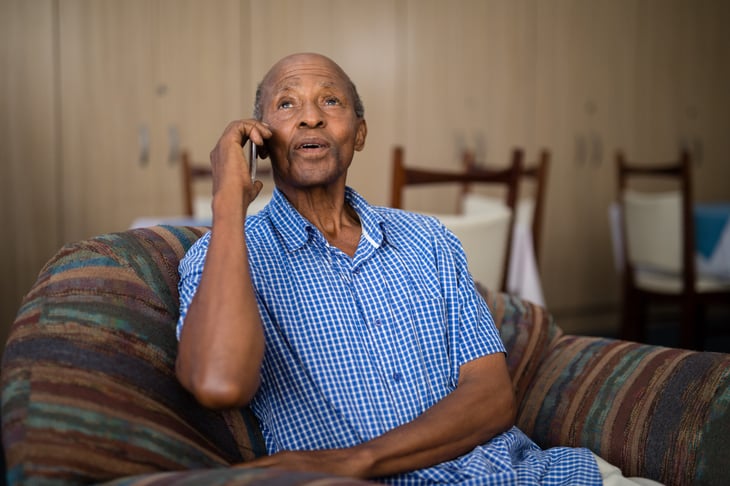by Amy Biancolli
Our guest today is Diane Dimond, a longtime, award-winning
investigative journalist specializing in crime and justice issues. As a
freelance journalist, syndicated columnist, and former television
correspondent, her reporting and commentary have been featured in
newspapers, magazines, and TV news outlets across the country.
She’s also the author of several books, including Be Careful Who You Love: Inside the Michael Jackson Case, which she wrote after years of groundbreaking reporting on the topic; and her most recent, We’re Here to Help: When Guardianship Goes Wrong, just published by Brandeis University Press.
The transcript below has been edited for length and clarity.
Amy Biancolli: Diane Dimond, welcome. Thank you for joining us today.
Diane Dimond: Thank you for having me, Amy. I appreciate your time.
Biancolli: Your book has so many stories, absolute horror stories—one
after another, the stories of human anguish. But before we delve deeply
into that, if you could, for our listeners who aren’t familiar with it:
What is guardianship? In some states it’s called conservatorship.
Dimond: Well,
that’s really where you have to start, because it’s such a secretive
court system that most of America doesn’t know what the heck it is.
Guardianship is a legalized system whereby states help with their
citizens who need help, those who need protection because of various
maladies, disabilities, physical or mental. They’re elderly, they have
no family to take care of them, and they’re having memory issues. It’s a
court system that we really need in this country to help the citizens
who cannot help themselves.
After eight years of investigating
cases and writing about them in my syndicated column and magazine
long-form articles, I discovered that the system has been infiltrated by
predators, financial predators who have simply, quite simply,
bastardized the entire system. It’s not there—in many instances—to
protect people. It’s there ready, willing and able to victimize people,
and that’s what caught my attention. Thank you for saying there’s so
many stories in this book, because I wanted to show the various ways
that guardianship has morphed into this industry. Really, in my mind I
like to call it a racket. It’s almost like organized crime in some
instances.
Biancolli: That really comes through in your book—the
abuse, the fact that this is state-sanctioned, literally, and state
run. And it’s all behind closed doors. Most people don’t know what’s
going on. There’s the level of horror in terms of what people have to go
through, and then that horror seems even more extreme because it’s done
in secret.
Dimond:
Right, and it’s allowed because a judge has decreed that someone is
“incapacitated.” Let me just quickly tell you how it all started.
Anyone, and I mean anyone, from your landlord, to your next door
neighbor, to your angry business partner, to your former lover can go to
a lawyer and say, “Hey, I want some of that person’s money or property,
what can I do?”
The lawyer will inevitably say, “Oh,
guardianship. This is a panacea. Guardianship.” It might even be a
family member, an adult child of an elderly person, for example, who
can’t get along with their brothers and sisters about what to do with
mom or dad. The lawyer will say, well, let’s write up a petition to the
court and I’ll just give it to the judge and he or she will rubber stamp
it. That’s literally what happens.
The judges that hear these cases,
they don’t have time to vet what’s in this petition, and many times
what’s in these petitions are just downright lies. Having gotten a
petition from an officer of the court, a familiar lawyer in front of
them, the judge says, okay, guardianship. It’s now in effect. Once
someone is in the guardianship system, even if it’s a temporary
guardianship, it’s almost impossible to get out of guardianship.
Amy Biancolli: That’s the other thing that I think most people
are unaware of. The idealized version of guardianship is to help someone
who is in fact either temporarily or permanently incapacitated by
something, whether it’s brain trauma, perhaps it’s some type of
disability, perhaps it’s Alzheimer’s.
Dimond: Perhaps they just had a stroke, and they’re going to recover.
Biancolli: They’re going to recover and usually, or
frequently, it’s a loving family member who steps in and takes care, and
is in charge of their finances. And you do, early on, describe some of
those loving family members who actually perform their jobs in a caring
and responsible fashion. But the book is looking at the flip side of
that, the people who aren’t caring—the professional guardians primarily,
but also some family members who abuse this profound power to sap
resources and essentially take over someone’s life and finances. How
common is this?
Dimond: Amy, I wish I could
answer that definitively. Let me throw out some figures for you. First
of all, nobody keeps track of guardianships in the United States.
Nobody. There is no entity that says, okay there are 4,000 in Arizona
and there are 11,000 in Illinois. Nobody knows. Then, how often does an
abusive guardianship, a financially devastating guardianship, happen? I
don’t know. But I’ll tell you: Over eight years I collected so many, I
could have written a book that was twice as long as this book. I feel
guilty that there were many cases I didn’t even mention in the book.
But here are some stats for you.
Every year in this country, state courts hear guardianship cases. The
targeted person is declared an incapacitated ward of the court. They are
stripped of their civil rights. In most states, the vast majority of
states, they can’t even hire a lawyer to defend themselves because
they’re incapacitated. These state courts then confiscate the money,
property, investments of all the wards and put it in the name of the
guardian.
Every year in this country, state
courts confiscate $50 billion worth of estates. So is it any wonder that
financial predators have thought, “Hey, I got to get in on this, this
is great”? Because only three states actually require a guardian to be
licensed—California,
Alaska, and Nevada. Many of them don’t even require them to get any
sort of certification. It’s just a playground for predators. That is
what it’s become.
Guardianships last an average of six
years. If it’s $50 billion every year that the state courts are
confiscating, that’s a pot of money of $300 billion just sitting there.
Now, as you say, there are some great guardians, there are some great
conservators and lawyers working in this field, and some of the
guardianships work out just fine, especially if a family member is
appointed as the guardian. But more and more, I discovered when a case
comes before a judge, a judge decides, “Well, if it’s in court the
family must be dysfunctional, so I’m not going to appoint you, brother
Joe, as the guardian. I’m going to appoint a for-profit professional
guardian.” They can charge you up to 600 bucks an hour, and hire any
amount of other helpers to come on to service the ward. You can see how
an estate gets drained pretty quickly.
Biancolli: As you point out, that $600 an hour can be
applied to something like answering emails, something really mundane and
small. I would at some point like to hear you describe a case, a
specific case. One that really popped out to me is the story of Carl,
the young man with disabilities. There are so many others that just
broke my heart. But just to emphasize before you get into that: when
someone becomes a ward of the state, they essentially lose their right
to vote, they lose their right to spend their own money. They lose their
right—as many of us learned from the Free Britney Movement and her
whole guardianship struggle—to get married, lose the right to make all
these basic human decisions, because they all have to be made by the
guardian or the conservator. Someone who’s a ward is stripped of their
civil rights, their basic human rights.
Again, there’s just so many stories. But is there one that
to you typifies what happens, or illustrates it in a way that people
will just hear and connect?
Dimond: You’re asking me to choose my children, here.
Biancolli: I realize. I mentioned Carl, this young man with
developmental disabilities who was essentially informally adopted by a
really loving family, and he wound up with this outside guardian. It was
just an unbelievable nightmare. Here, he had this entire loving family
advocating for him. But as you described, whoever is trying to become
somebody’s guardian for the right reasons, they wind up being vilified
by the court—and so the judge assigned somebody else.
Dimond: Right. Carl DeBrodie
was born to an addicted mother who neglected him, at the very least.
The school bus driver, a wonderful woman, sort of adopted him. He was
profoundly disabled, both physically and intellectually. She and her
husband took in Carl. They just loved Carl, and Carl came to live with
them. His mom didn’t really care that that happened, but they loved him
so much. The whole big family did. But somewhere along the line, they
thought, well, we should get this legalized.
They went to court to become his
guardians. The judge said no. He assigned an outside guardian. That
guardian—a stranger, complete stranger—had
no idea what the loving couple was about or Carl’s needs, wants, or
woes. They took him out of that home and put him in a group home. To
make a long story short, that group home was run by a couple of
criminals. I can say that because they are in prison.
They made a slave out of Carl. They would take him home to their house,
make him sleep in a damp basement, do the chores. Then they brought
another person home from the group home, another disabled man, and had
them fight in the basement for their own amusement.
In the end, Carl was killed. He was
murdered, frankly. They stuffed him into a can of cement and put him in a
storage locker only to be found months and months and months later.
Nobody really knows the date of death of Carl DeBrodie. That’s one case.
There’s another case in Staten
Island, New York. A young man, damaged at birth. He was deprived of
oxygen and he developed a mild case of cerebral palsy. He walked a
little differently, and he spoke a little differently, and his parents
won about two million dollars in a malpractice suit from the hospital.
As an infant, the court named a guardian for him. It’s the Shirley
Temple Law that you don’t want the parents to spend all the money, so
the money is protected till he’s 18 years old. His name is Michael
Liguori.
At 18, Michael now wants his money.
He’s graduated from high school with good grades. He wants to go to
college. He has a problem with his hand and he wants to get surgery. The
guardian says, no, no, no, no. Goes back to the judge and says, your
honor, look at him. He’s intellectually disabled. Look at it. He can’t
even walk right. The judge allowed that guardianship to go on for six
more years. Six more years of the guardian and the people the guardian
hired taking chunks of Michael Laguori’s money.
Michael called me last Christmas and
said, “Diane, it’s over. I’m finally free.” I said, “What happened?” He
said, “I didn’t want to—they hung on for a long time—but
the guardian was insisting that I pay him $58,000 more, so I went ahead
and paid him. And now I’m free.” I spoke to him about a week ago and I
said, “Michael, do you know how much money is left?” He said, “No, I
really don’t.” Because the guardian who was supposed to file this annual
audit saying where all of Michael’s money has gone, he never filed it.
He never filed an audit with the court, which is mandated by law.
What happened to that guardian? Nothing.
This is the problem, Amy. I find
these unscrupulous guardians all over the place, and when they get
caught, mostly they get a slap on the wrist. Some of them now are
actually being convicted, which is heartening. But it just breaks your
heart. All of these stories, I can go on and on.
Biancolli: I know you could go on and on, because there are
so many stories like that in the book. Each time I read one, well, why
didn’t law enforcement do something about this? I’m not a lawyer, I’m
not a scholar when it comes to these things, but good lord, it’s
criminal. On a human level, it’s just so deeply wrong. It’s appalling
that there are so few cases where someone like Michael has some kind of a
happy ending, even though he had to pay for it. That’s just
astonishing. But to him it’s a victory. To him it’s a victory because
it’s over.
Dimond: Now he finally can
make his own decisions. Like you say, a ward cannot vote. They can’t
decide where they live. They can’t write a check. They can’t have a
baby. They can’t get married. They can’t write a contract. People on
death row have more rights than a ward of the court. It’s stunning to me
how powerful guardians are.
If you go to court and you think
you’re going to be the guardian of your elderly mother, and the court
appoints an outside professional guardian—and
you don’t like what that guardian’s doing to your parent, and you
complain to the court? That guardian can ban you from seeing your loved
one. Permanently ban you. They can go back to court and they can say,
“Your Honor, all of the liquid money is gone. I’ve gone through the
checking account money and the savings account money. So now I need to
sell the ward’s house and everything in it so that I have enough money
to take care of them for the rest of their life.”
No matter that there is a last will and testament, a power of attorney, an estate plan, a trust, an irrevocable trust—in
effect, judges nationwide nullify those legal documents and say, “Okay,
go ahead, sell the house.” Now, that house maybe was bequeathed to the
adult daughter or the adult son—or
the heirlooms inside it, worth a lot of money. Suddenly they sort of
disappear in the sale, and nobody knows where those things went. This is
how powerful guardians are.
Some of them, they’re financial
predators, but some of them are also just control freaks. They just get
off on the control of it. I’ll give you a quick example. In Las Vegas,
Nevada, there was a guardian named April Parks,
and she was convicted. She’s doing 16 to 40 years in prison for
stealing from her wards in Nevada. After she went to prison, her storage
locker came up for auction. The man who bought it opened the door
thinking, hey, what kind of treasure will I find here? What he found
instead were the cremains—the cemetery urns—of
27 of April Parks’s wards. But in some instances, she hadn’t even told
the family that the person had died. She made no attempt to get the
cremains in a respectful manner to the family. She just shoved them in a
storage locker and closed the door. You know, why? Why did she do that?
Because she could. Nobody stopped her. The judge intervened.
I keep asking myself as I recall all
these stories, where was the judge in all this? Why doesn’t the judge
listen to the family? Well, because in the very beginning, the family
was declared to be dysfunctional or greedy—after the inheritance before the person even dies—and
so in the eyes of these judges, the families are tainted from the
beginning. There’s no way they can redeem themselves. These are called
equity courts. This isn’t like a criminal court or a civil court. In
equity courts, there’s no due process guaranteed. There are hearings but
there’s no trial. At the hearings the judge will mostly just listen to
the guardian’s medical person who says, “Oh yeah, yeah, the person’s
incapacitated.”
They’ll listen to the court visitor,
the same one who always works with the guardian. “Oh, yes, I went to the
home and it was a mess and this person needs protection.” It’s the same
testimony in all these cases—and
all these people work together to enslave people, frankly. There are
processes that are far less restrictive than strict guardianship that
judges could consider, but they don’t because it’s just easier to say,
“Oh, petition for guardianship? Okay, guardianship’s on.”
Biancolli: Here at Mad In America, the readers and listeners
are accustomed to stories of people who aren’t heard for whatever
reason, because they’ve been slapped with a label. You give some
examples in your book—for instance, a young woman who’d been diagnosed
with depression, borderline, ADHD, and she was guardianized. She was
making an argument for freedom from guardianship because she enrolled in
college and she has a decent GPA. She’s obviously functioning. But
because she’s been labeled—she has been deemed by somebody in the courts
as incapacitated, however they might define it—she’s stuck.
Once we label someone as somehow problematic, diagnosed,
whatever it is, then we stop listening to them and we stop taking them
seriously—and we start stripping their human rights.
Dimond: Now, think about
what you just said. Is that the society we want to be? Is that what we
want to do to people who have temporary issues? Mental or physical
issues? We take them and we warehouse them away somewhere with a minder
that can keep them away from everyone else—and oftentimes, I discovered, over-medicate them to ensure compliance. Is that the country we want to be in?
Let me quickly tell you about a woman
down south: 38 years old, single woman, successful, bought herself a
condo. She had a car, she had money. You see, guardianship abuse happens
with people with money. Keep that in mind.
While she was in a coma she was
guardianized, and when she woke up she found herself in a group home,
where she recovered. But she’s in guardianship. She’s “labeled,” as you
say, incapacitated, and she couldn’t convince the judge, “Hey, I’m okay
now.” That group home owner put her to work. She became the housekeeper,
the grocery shopper. She was on the computer keeping the dosage of
medications going to all the other residents. She really became
enslaved. It took her years to get out of that guardianship because the
judge just wouldn’t hear her, couldn’t imagine that somebody could get
better from a traumatic brain injury. Give me a break. What century are
we living in?
Biancolli: Yet here she was, doing all this work. I’m
reminded of the story of Britney Spears, who was locked into this
guardianship while she was raking in millions. How incapacitated was
she? Of course in her case, I think she was stuck in guardianship for 14
years before she finally got free of it. For a lot of people, that was
the a-ha moment when they understood or saw, for the first time, an
example of the problems with guardianship. You do talk about her quite a
bit at the beginning as an embodiment in pop culture of what’s wrong
with it.
Dimond: I went back and really did some investigative work on that, and I truly believe that her guardianship—conservatorship, they call it in California—was
established illegally. The judge in the case pulled some strings and
appointed her favorite guardian, Sam Ingham, to be Britney’s co-guardian
with her father. Sam Ingham made $10,000 a week for almost 14 years off
Britney Spears, while she’s dancing and singing in Las Vegas and being a
judge on the TV talent show and, as you say, raking in millions of
dollars. There’s a California law, I discovered, that anyone who is a
ward of the court who makes money should be given that money. But she
never got it. I mean, she had a little allowance, but yes, that whole
case really woke up America. But still, because it’s such a secretive
system, the courtroom doors are closed, the case files are often sealed,
there’s frequent gag orders issued.
It’s all under the guise of HIPAA
protection. There’s this federal law that protects people’s medical
information, and so that’s a really convenient cloak used to keep
everything secret, to keep the rest of us, really, in the dark. That’s
why I wrote this book, because I got those case files and I talked to
people who didn’t care about the gag order. They just wanted to tell
their story so badly. And it was a lot of work, but it was a real
passion project for me.
Biancolli: How many years did you spend researching this book?
Dimond: Well, since 2015, so
about eight years. I first heard of the case in my home state where I
grew up, New Mexico, but I couldn’t report on it because I couldn’t get
the court documents. A dear friend’s father had been guardianized, and I
just had to tell her, “I’m sorry, I believe what you’re saying, but I
can’t confirm it. As a journalist, I have to have documents or other
people confirming what you’re saying.” And I couldn’t crack it.
Then a few months later,
coincidentally, a private investigator I work with told me about a case
in Pennsylvania. [The cases in] New Mexico and Pennsylvania were both
elderly people, both held under guardianships that they did not want,
that siphoned off their multimillion-dollar estates.
I began to write about the case in
Pennsylvania, a woman named Betty Winstanley, just a fascinating woman.
She was so interesting to talk to, and I actually went to a court
hearing with her. When it was discovered I was there, I got tossed out
of the courtroom, but I wrote about her in my syndicated column. I began
to write about the exorbitant amount of money her guardian was
charging, because I had the spreadsheet that the guardian had sent to
the court. Don’t ask me how I got that, but I got that. I started to
write about Betty Winstanley’s case, and Amy, I cannot tell you how many
dozens and dozens of people contacted me from states across the country
saying, “Me, too. Please tell my mother’s story, my brother’s story, my
sister’s story, my dad’s story.” I realized, this is a nationwide
problem. Nobody’s writing about this. Nobody’s talking about it.
But I’ll tell you, I found that there
are some two million people in guardianship right now. Now, we heard
about Britney Spears, but there are two million others living under
guardianship now. Some of them, the situations might be just right—a
family member who knows what the ward wants out of life and what their
goals were. If they’re the guardian, that’s great. But that’s not what
this book is about. This book is about all the ones that ran off the
rails and enriched predators working within the system.
Biancolli: “Enriched” is the word, too, because one of the
stories you tell concerns Marian Kornicki, whose story is familiar to
people who read Mad In America. In fact, in your book you refer to her
piece from January of last year, “Guardianship Destroyed My Family,”
and she describes this nightmare situation. At one point she uses an
analogy, a metaphor, that I think someone else used as well:
Guardianship was used to “turn us into human ATM machines.” Whoever
happens to be guardian or conservator of someone with wealth, they can
basically do whatever they want with that person’s money.
One other piece of it that I want to ask you about is the
way wills are completely discounted. Someone might have expressed their
desires. They might have said, “Yes, I would like to live in this little
house and be near family, and then I want to leave my money to X, Y,
and Z.” That might all be documented, but that can be discounted.
Dimond: And nullified by
guardianship judges, yes. In Marian’s case, her sister, Terri, was
stealing money from her parents. I mean, the district attorney came in
and charged her sister with a crime, and still, the judge in the case
said, “Well, I’m going to make both you sisters the guardians.” Well,
why in the world would a judge do that? I’ll tell you why: Because the
players in this abusive part of the system love conflict. They love it
when a family member fights back, because that means there’s more court
hearings. The guardian can charge more hourly fees, and then the
guardian/conservator and the lawyers involved all have to write reports.
That accumulates more fees. Who pays for everything? The ward of the
court. If you fight back, you’re depleting your loved one’s money, but
you’re also depleting, probably, your own inheritance. They’re using
your potential inheritance against you to fight you. You see the
Catch-22?
It’s a system that is so stacked
against families and wards in many instances. I found people who were
not incapacitated at all, like Betty Winstanley in Pennsylvania, yet
they were guardianized. She had a hearing problem, and so she’s [deemed]
incapacitated. Her oldest son guardianized her in Pennsylvania and her
$2 million estate. She wanted to move down to Maryland and be with her
other two children, who, frankly were the only ones who ever came to
visit her.
She told me actually on the phone,
“My older son, he always had problems. He always fought with his
siblings, and I think this is just his way of getting back at me, making
me stay in Pennsylvania.” Did you think the Pennsylvania judge in that
case was going to let a $2 million estate go away to another state? No,
he didn’t.
She died alone in a place where she didn’t want to be during COVID.
Biancolli: Throughout your book you tell stories like that.
You also talk about the struggles and the plight of the elderly, and
some of them are incapacitated or struggling with dementia. But at the
same time, they should still have human rights. They should still have
basic civil rights. They should still be treated as human beings, right?
For the elderly, specifically, in your book you note an older man with
Alzheimer’s who was found living in his guardian’s dirty basement,
wearing a diaper. The guardian had stolen more than $640,000 from this
man. I know that’s an extreme and horrific case, but there are also
situations in nursing homes where people are drugged off their
heads—where chemical restraint is so common.
You also describe in your book several cases of people who
were taken from their homes and forced into facilities when they had
family members who wanted to take them in. I mean, it should seem so
obvious. We should be treating our elders better. Isn’t that supposedly
something that we value? But apparently not. Apparently, once somebody
has the slightest incompetency or incapacitation—some kind of
disability, whether temporary or permanent, or they’re labeled with a
psychiatric disorder—it’s, “Forget it, you don’t have any more rights.”
Is that extreme, or is that pretty much the case?
Dimond: No, you said it very well. I wish I could have quoted you in the book.
My husband was one of my proofreaders. He said, “You know, every page makes me mad or sad. I can’t decide which.”
But I do try to meld in: how does the
system work? Who are the players you’re going to find in it? How do
these guardians get into league with so many other people within the
system, and they all know what’s happening? But
nobody will tell on anybody else, because if you tell about the
misbehavior going on, then you lose your place at the trough. Many
guardians are becoming real estate agents now, so that when they go to
the court and say, “Your Honor, I’m out of money, I’ve got to sell this
house,” they get a commission off of selling the house.
There’s a judge in Polk County,
Florida, right now who’s under the microscope, because he has bought up
the homes of wards at very low prices and then he resells them for a big
profit—and
this has happened with multiple homes. If there are antiques in your
house, a guardian knows an antique dealer who’s going to come in and buy
the lot for a low price, and then sell it at a higher price and split
it with the guardian. Cars, automobiles, collectibles, coin collections:
all of a sudden they’re just gone, and the family can’t find them, and
the guardian says, “Well, I don’t know. I don’t know what happened, Your
Honor.”
There’s a woman named Rebecca Fierle
in Florida. By the way, Florida is the worst possible state for abusive
guardianships. Please, if you’re elderly, if you’ve got money, don’t
retire there. I’m sure their chamber of commerce will be mad at me for
saying that. But Rebecca Fierle was a guardian in Florida. She had more
than 400 wards spread across several Florida counties. Now, one person
cannot possibly serve 400 wards, I mean, you just can’t. But judges kept
giving her more and more and more wards. That meant that immediately
she got her name on everybody’s property, money, investments, homes.
She then proceeded, with no one’s
knowledge, to put do-not-resuscitate orders on all of her wards. One
particular man who had a little bit of money—not
a lot, but he was a real problem for her, because he had a swallowing
difficulty and often wound up in the hospital having to have a feeding
tube. In addition to his DNR, she put a feeding tube cap order, and so
the next time he had his swallowing problem and was about to asphyxiate
himself, the hospital staff could only stand by and watch Steven Stryker
die, because the guardian had put these orders on his medical chart.
She had been beseeched by the doctors, “Please take that cap DNR off,
because this guy’s going to—.” No, no, she said, “It’s all about quality
of life, not quantity of life.” And so Steven Stryker died.
The State of Florida went back, did a
big study and found all these DNRs on all these wards, and all this
money she had gotten under the table from hospitals and whatnot. When it
came to the court session, she was charged with dozens and dozens of
crimes in the beginning. But by the time the trial came around, it was one count of neglect of an elderly person. And this is not in the book, because the sentence came too late: four months probation.
Biancolli: Four months probation.
Dimond: Yes. Rebecca Fierle
has now registered herself as a life coach in the State of Florida. It
would be my recommendation, if you need a life coach, you might not want
to choose Rebecca Fierle.
Biancolli: Wow. What other recommendations do you have for
people? What other advice do you have to people listening in terms of
avoiding a guardianship for themselves or family members? What would you
say to people?
Dimond: I’ve got a whole
section in the book, and I’ll just be brief. First of all, if your
family cannot come to an agreement about what to do with your vulnerable
loved one, please don’t go to a lawyer first. Again, I’m sure the legal
community doesn’t want me to say that—but go to family mediation first.
It’s going to cost you a lot less,
and it really is very effective when a mediator looks at all the adult
children and says, “Listen, this is what’s going to happen if you start
to fight amongst yourselves.” They will explain what happens in
guardianship, and they will explain that the person you hurt the most is
your vulnerable loved one you are trying to protect.
If you are caught up in guardianship, try to—from
the very beginning if you can, because often times these petitions just
get approved without any family being in the courtroom or even the ward
begin in the courtroom—engage a lawyer to suggest to the judge that they try something called Supported Decision-Making.
This is a volunteer program where family, friends, even staff of the
court in some states, will go in and just assist the person. They need
help with their checkbook, or they need help with transportation, or
they need help taking their medication every day.
It is an option, but in most states
judges don’t even consider it, even when many state laws say there the
judge may consider Supported Decision-Making. Well, that means they
don’t have to. And they don’t.
Another thing is if you have children
that are squabbling amongst themselves, and you have money, and you
want to make sure you don’t get put into guardianship—everybody’s
got a cellphone now, right? Set it up on your dining room table and
speak to what your desires are. Do you want a guardianship, and who
would you want to be the guardian? Do you want to stay in your home with
healthcare aides coming in, and your money to be used for that instead
of guardianship? Put it on videotape, because that’s a powerful piece of
evidence to show to a judge.
May I recommend that at the very end of that—if you can—have
a big family meeting while you videotape yourself. Tell your loved ones
if they start fighting over this, and anyone tries to put you in
guardianship, they are automatically disinherited. They don’t get any
inheritance at all. Funny how that stops people from going after
guardianship!
Biancolli: A motivator. What needs to change? I know that’s
another massive question, and you spend a lot of time answering that in
the book. Should guardianship be federally run? Do we need a national
database to keep track of all of it? Should there be a national registry
of guardians, a certification system nationally? You mentioned
Supported Decision-Making as a good approach, but what needs to happen?
Dimond: Yes, yes, yes, and
yes to everything you just said. I think guardians should be licensed by
the state, and then if you do something wrong, you lose your license;
you can’t practice in that arena anymore. I think all states need to
have certification levels for guardians. But here is something we
haven’t talked about, and I think really needs to happen: When a
guardian is found doing something wrong like we have talked about here,
and I talk about in the book, they need to be punished.
There is a woman named Susan Harris in New Mexico who stole $11 million from her wards—she is doing 47 years in prison, by the way. They need to be punished, because that sends a signal to other bad actors.
In addition, when guardians tell
loved ones, “I’m sorry, you upset the ward, so you can’t visit anymore.”
You go to the local police department and you say, “Hey, I can’t get in
to see my elderly mother anymore, or my disabled brother. The guardian
won’t let me.” You know what the law enforcement says? They say, “Sorry,
there’s a judge’s rule. That there is a civil order, and we only deal
in criminal matters.” You go to the district attorney. You go to the
attorney general’s office. They all are hands off if a judge has ruled.
They don’t want to go up against a sitting judge’s order. I think law
enforcement needs to start paying attention to the fact that, no matter
if there is a civil order in effect, if someone is being held against
their will, that’s kidnapping. If someone’s money is disappearing,
that’s either extortion or fraud or embezzlement. There are all sorts of
laws that law enforcement should be looking into, and they just don’t. I
think that needs to change as well.
Basically, we all need to start
educating ourselves on guardianship, because even if you have a small
military pension coming in every month, or you are disabled, totally
disabled, you get $10,000 a month to care for you. Well, a guardian can
step in and put you in a group home, an unsavory group home that costs
$3,000 a month. What happens to the rest of that 10 grand?
Read my book, frankly, or otherwise get yourself educated on my website www.dianedimond.com. There is a whole section called Guardianship Central.
There’s lots of resources there. There’s a Frequently Asked Questions
section, and there’s a glossary, because when you get embroiled in this
system, there are all these names and phrases and positions of people
within the system that come at you. “Whoa, what does all this mean?” I
answer those questions for you on the website.
Biancolli: One more thing I’d like to just go back to—what
should be foundational, which is civil rights protections of people,
especially those most at risk. The WHO has identified forced treatment
as a basic human rights issue. Why isn’t it more obvious? Why isn’t it
foundational that we should be advocating for the rights of people who
most need that advocacy? It should be foundational that people should
have civil rights, but so frequently their civil rights are stripped
from them. Why does this happen? Is this a classic case of “money is the
root of all evil” or “power corrupts—absolute power corrupts
absolutely.” Is that it in a nutshell?
Dimond: Yes, yes, and yes,
you got it right on the head. There’s a lot of advocacy groups trying to
reform guardianship right now. One of the major ones is CEAR, which you can find on Facebook, run by Terri and Rick Black, warriors in the fight. They’ve counseled more than 5,000 families about this. Tom Coleman at the Spectrum Institute fights
for civil rights and disabled people. Again, what kind of country are
we that we take the supposed or actually most vulnerable people and hold
them incommunicado, strip them of their rights, put them in places
where they don’t want to be, give them no voice of their own? I just
don’t understand it, except to say nothing changes because of the
lobbyists, the lawyers, the guardians, the guardian ad litems, the
nursing homes, the hospital lobbyists.
When they have an elderly patient or a
disabled patient in the hospital and their insurance is running out,
they call their favorite guardian and say, “Hey, I got another one for
you.”
Again, many guardianships work well.
That’s not what I am talking about. I’m talking about the $15 billion
every year that’s up for grabs, that bad actors with dollar signs in
their eyes zoom in on, and the factitious guardianships they create. How
about this one: there is a mechanic in Texas who was not getting paid
by a wealthy man to work on his classic cars. The elderly man was having
some memory issues, so the mechanic went to a lawyer in Texas and he
said, “What can I do to get this guy to pay me?” The lawyer said, “Well,
why don’t you guardianize him?” It worked. Suddenly this car mechanic
in Texas was in charge of this multimillionaire’s entire estate. He got
his $30,000-$40,000 he was owed, but he was in charge of the man’s
entire wealth. It took that family a couple of years and a lot of money
to get that man out of that guardianship.
But anyway, why do we do it? Because
nobody stops it. The United States Congress has been having
heartbreaking hearings on this since the 1980s. What comes of it?
Nothing. They say, “It’s a states issue, we can’t do anything.” Well I
call BS on that, Amy, because the Department of Justice goes into police
departments in states when they think there have been civil rights
violations, and they put those departments under watch. And they give
them rules and regulations that they have to follow to keep civil rights
safe. Well, why can’t they do it with guardianship? The answer is they
can if they wanted to, but they don’t.
Biancolli: This has been an extraordinary conversation full
of really sobering truths. Our guest today was Investigative Journalist
Diane Dimond, author of the new book We’re Here to Help: When Guardianship Goes Wrong. For more on her work, see www.dianedimond.com. Diane, thank you so much for agreeing to speak with us. This has just been, as I said, an extraordinary conversation.
Dimond: Amy, thanks so much
for being interested in this topic, because when I bring it up to some
people, they say, “I don’t know, that sounds boring.” But it isn’t when
you really delve into it.
Biancolli: It’s the opposite of boring. It’s so compelling,
and it’s absolutely imperative that word gets out there that this is
going on. So again, thank you.
Dimond: Thank you.
Source:
‘A Playground for Predators’: Diane Dimond on The Abuses of Guardianship




























